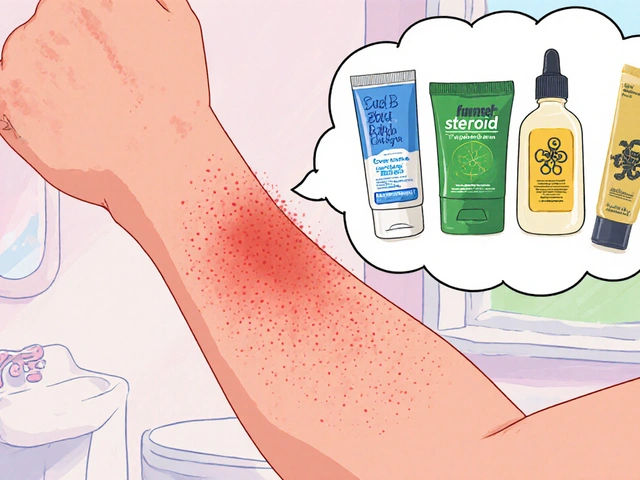Cortisol and Inflammation: What You Need to Know
Ever wonder why you feel achy after a stressful week? That’s cortisol, the body’s main stress hormone, poking the inflammation alarm. When cortisol spikes, it can either calm or fan the flames of inflammation, depending on how long the surge lasts. Short bursts usually keep things in balance, but chronic high levels turn your immune system into an over‑reactive bully.
Why Cortisol Can Trigger Inflammation
Cortisol’s job is to help you survive short‑term stress. It raises blood sugar, quiets the immune response, and prepares you for action. However, if cortisol stays elevated for days or weeks, it messes with the signals that tell your immune cells when to stop. The result? Persistent aches, joint pain, or even skin flare‑ups. Studies show people with constantly high cortisol often have higher C‑reactive protein, a key marker of inflammation.
Practical Ways to Keep Cortisol and Inflammation in Check
Good news: you can tame both cortisol and inflammation with everyday habits. Start with sleep—aim for 7‑9 hours, because missing rest spikes cortisol fast. Next, move your body. Even a 20‑minute walk lowers cortisol and releases anti‑inflammatory chemicals called endorphins. Nutrition matters too: foods rich in omega‑3s like salmon, walnuts, and flaxseed help blunt inflammation, while cutting back on sugar and processed carbs prevents cortisol spikes.
Stress‑management techniques are also a game‑changer. Deep breathing, meditation, or simply taking a short break when you feel tense can drop cortisol levels within minutes. If you’re dealing with a high‑stress job, try the "5‑4‑3‑2‑1" grounding exercise: name five things you see, four you can touch, three you hear, two you smell, and one you taste. It’s quick, easy, and proven to calm the nervous system.
Lastly, keep an eye on caffeine and alcohol. Too much coffee or a nightly glass of wine can keep cortisol elevated, especially if you’re already stressed. Swap that extra cup for green tea, which contains L‑theanine—a compound that smooths out cortisol spikes while supporting a calm mood.
By combining better sleep, regular movement, smart food choices, and simple stress hacks, you can keep cortisol from turning your body into an inflammation hotspot. You don’t need a drastic overhaul; small, consistent tweaks add up fast. Start with one change today and notice how much better you feel in just a few days.
Nodular Acne and Sleep Quality: The Real Link and a Night Routine That Works
How sleep and nodular acne feed each other, what science says, and a simple plan to sleep better and calm breakouts. Practical tips, checklists, FAQs.
View More




